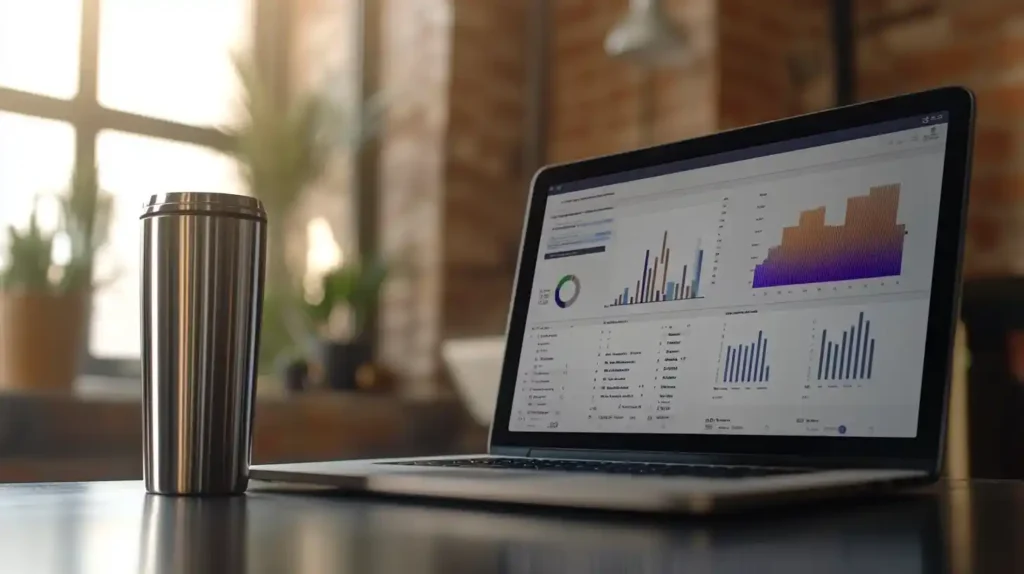In the competitive landscape of wholesale stainless steel tumblers, establishing a robust and efficient supply chain is vital for maintaining a competitive edge and driving profitability. A well-optimized supply chain helps reduce costs, enhance product quality, and ensure timely delivery to your customers. Here’s a comprehensive guide to building a powerful supply chain that supports your wholesale stainless steel tumbler business.

Tabula contentorum
- 1 1. Source Quality Raw Materials
- 2 2. Optimize Manufacturing Processes for Efficiency
- 3 3. Establish Strong Supplier Relationships
- 4 4. Implement Advanced Inventory Management Systems
- 5 5. Embrace Technology for a Competitive Edge
- 6 6. Focus on Sustainability to Boost Brand Image
- 7 7. Develop a Proactive Risk Management Strategy
- 8 8. Invest in Quality Assurance for Customer Satisfaction
- 9 9. Build a Resilient Distribution Network
- 10 10. Emphasize Continuous Improvement in the Supply Chain
- 11 conclusio
- 12 Citations
1. Source Quality Raw Materials
Building a strong foundation starts with sourcing high-quality raw materials. Partner with reputable suppliers who can consistently provide food-grade stainless steel, such as 18/8 or 304 stainless steel, essential for producing durable and safe tumblers.
- Diversify Your Suppliers: Establish relationships with multiple suppliers to mitigate risks of shortages or supply disruptions.
- Quality Assurance: Regularly audit your suppliers’ production processes to ensure they meet high-quality standards.

2. Optimize Manufacturing Processes for Efficiency
Manufacturing efficiency is crucial for keeping costs down while maintaining high product standards. Lean manufacturing principles can streamline production, reduce waste, and improve turnaround times.
- Invest in Modern Equipment: Upgrade to state-of-the-art machinery that can enhance productivity and reduce operational costs.
- Quality Control: Implement a thorough quality control process that inspects products at every production stage to ensure they meet your specifications.

3. Establish Strong Supplier Relationships
Strong supplier relationships are key to negotiating better terms, gaining insights into market trends, and ensuring a steady supply of materials during peak times.
- Long-Term Contracts: Secure long-term agreements with your suppliers to lock in better pricing and ensure priority treatment during high-demand seasons.
- Collaborative Development: Work closely with suppliers to innovate and improve product designs based on market demand.

4. Implement Advanced Inventory Management Systems
Efficient inventory management ensures that you meet customer demands without overstocking, thus optimizing cash flow and reducing storage costs.
- Real-Time Tracking: Utilize inventory management software to monitor stock levels and sales data, allowing for quick adjustments based on trends.
- Just-in-Time (JIT) System: Consider implementing a JIT inventory system to streamline operations, reduce waste, and increase efficiency.

5. Embrace Technology for a Competitive Edge
Technology plays a crucial role in modern supply chain management, offering tools that can optimize every aspect of the process from production to delivery.
- ERP Systems: Integrate Enterprise Resource Planning (ERP) software to manage all elements of your supply chain seamlessly.
- Blockchain for Transparency: Use blockchain technology to track each step in your supply chain, enhancing transparency and building consumer trust.

6. Focus on Sustainability to Boost Brand Image
Sustainability is not just a trend—it’s a critical factor that influences consumer behavior and brand loyalty. Integrate eco-friendly practices into your supply chain to differentiate your brand in the marketplace.
- Eco-Friendly Materials: Source materials from sustainable suppliers to reduce your environmental footprint.
- Sustainable Packaging: Adopt packaging solutions that minimize waste and promote a greener approach.

7. Develop a Proactive Risk Management Strategy
A proactive approach to risk management ensures that your supply chain remains resilient in the face of disruptions like natural disasters, market fluctuations, or supplier issues.
- Identify Risks: Regularly assess potential risks at each stage of the supply chain.
- Create Contingency Plans: Develop robust strategies to deal with unforeseen supply chain disruptions, ensuring minimal impact on your operations.

8. Invest in Quality Assurance for Customer Satisfaction
Consistent product quality is crucial for maintaining customer loyalty and enhancing your brand reputation in the stainless steel tumbler market.
- Regular Testing: Conduct regular testing to verify the durability, safety, and performance of your products.
- Customer Feedback: Use customer reviews and feedback to continuously refine your quality assurance processes.

9. Build a Resilient Distribution Network
A well-organized distribution network is essential for meeting delivery timelines and reducing shipping costs for your wholesale stainless steel tumblers.
- Regional Distribution Centers: Set up multiple distribution centers to speed up delivery times and reduce costs.
- Logistics Partners: Partner with reliable logistics companies that specialize in handling delicate goods like stainless steel tumblers.

10. Emphasize Continuous Improvement in the Supply Chain
Continuous improvement is the backbone of a strong supply chain. Regularly evaluate your processes and seek innovative ways to enhance efficiency and productivity.
- Benchmark Performance: Regularly measure your supply chain against industry standards to identify areas for improvement.
- Employee Training: Encourage your team to share ideas for enhancing supply chain efficiency and invest in their ongoing training.

conclusio
Building a strong supply chain for wholesale stainless steel tumblers is a multi-layered process that demands continuous effort and strategic planning. By focusing on quality sourcing, technological integration, sustainability, and risk management, you can create a supply chain that is both efficient and adaptable. A well-structured supply chain not only reduces costs but also positions your business to deliver superior value to your customers, helping you stay ahead in the competitive stainless steel tumbler market.
Implement these strategies to develop a robust supply chain that gives your business a lasting competitive advantage and supports sustainable growth.
Citations
[1] https://www.netsuite.com/portal/resource/articles/inventory-management/supply-chain-efficiency.shtml
[2] https://www.ilscompany.com/7-successful-strategies-to-improve-your-supply-chain/
[3] https://www.tribal.credit/blog/6-steps-to-an-efficient-supply-chain
[4] https://gembah.com/blog/supply-chain-strategies/
[5] https://taulia.com/resources/blog/11-supply-chain-management-best-practices/
[6] https://www.ascm.org/ascm-insights/what-is-supply-chain-strategy/
[7] https://www.netsuite.com/portal/resource/articles/erp/supply-chain-best-practices.shtml
[8] https://steelhydro.com/ar/stainless-steel-bottles/the-complete-guide-to-wholesale-stainless-steel-tumblers-everything-you-need-to-know/




